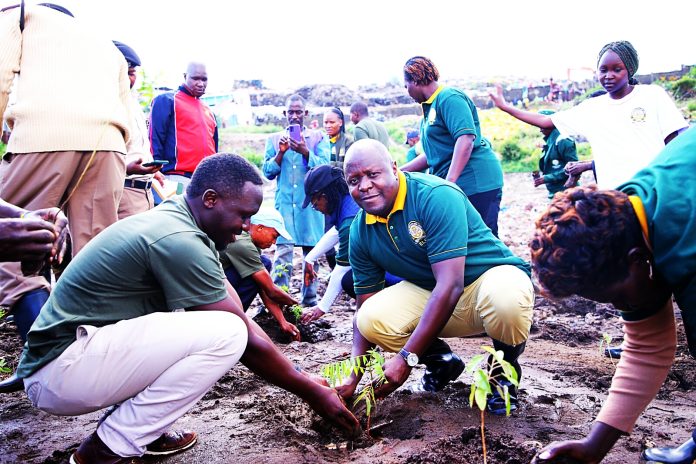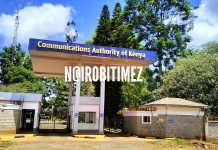
BY SAM ALFAN.
Communities have been advised to embrace home-grown land dispute resolution mechanisms that are effective, efficient and result-oriented.
Already, the High Court has established the Nairobi Land Justice Working Group to promote comprehensive initiatives aimed at settling land disputes in Nairobi City County.
The Working Group intends to harness people-oriented approaches such as Alternative Dispute Resolution Systems (ARDS) and Court Annexed Mediation.
The caucus will engage the public and stakeholders in consultative sessions to ensure their voices are heard and their concerns addressed fully.
The Principal Judge of the Land and Environment Court (ELC) Oscar Angote said the team has developed guidelines and an Action Plan with rigorous monitoring and evaluation mechanisms. This collaborative and comprehensive approach is expected to yield timely results.
Justice Angote was officiating the ELC Open Day and tree-planting exercise at the expansive Korogocho suburbia, the third largest informal settlement in Nairobi. He addressed the local community at the Daniel Comboni Primary School.
Justice Angote led a team of ELC Judges and Judiciary staff to plant trees on the banks of Nairobi River in the area.
The ELC Open Day and tree-planting exercise was replicated in 40 Counties where the court is established.
A similar initiative will be launched by Chief Justice Martha Koome on June 5.
Justice Angote pointed out that Nairobi City County as the country’s and region’s economic hub, holds immense potential for growth and prosperity. However, the County faced unique challenges related to land use, physical planning and environmental degradation, he noted.
The Judge reiterated the need for urgent effective environmental management and sustainable land use practices, which, he said, the court will strive to uphold.
The recent flooding within the capital city and especially informal settlements where lives have been lost, required urgent intervention, he said.
The ELC’s mandate is to resolve disputes related to security of land rights, sustainable management of natural resources, sound conservation and protection of ecologically sensitive areas and elimination of gender discrimination in land.
Justice Angote recalled that in the last 11 years, the ELC had reduced it’s case backlog from 30,000 cases in 2014/15 to 16,000 in 2021/22.
“As custodians of environmental and land justice, we are committed to applying the law diligently, guided by the principles of equity and sustainability. We aim to promote fair and timely resolution of disputes while advocating for responsible stewardship of our natural resources,” Justice Angote assured the locals.
The Principal Secretary in the State Department for Devolution Teresia Mbaika who joined the tree planting and addressed the gathering described the collaboration with the Environment and Land Court as vital, because it did not just involve planting trees, but was also sowing well cultured communities.
“The government advocates for an inclusive approach to strategize on how best to solve issues affecting its people,” PS Mbaika underscored.






